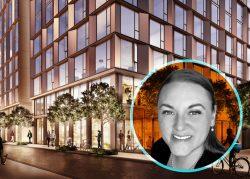San Francisco believes it can make some improvements to California’s new rules on multifamily zoning, intended to increase the state’s supply of affordable housing. The city’s Board of Supervisors just can’t agree on exactly what those improvements should be.
Three supervisors have proposed legislation that would allow four units on lots zoned for single-family homes and duplexes—about 60 percent of the city. Only a proposal from Supervisor Rafael Mandelman has received Planning Department approval thus far, and it is still unclear whether the issue will be resolved by the board or at the ballot box.
The latest proposal comes from Supervisor Ahsha Safai. It was introduced this week and would allow fourplexes in lots zoned for single-families or duplexes if two of them are affordable to those making 140 percent of the area median income, or 110 percent for rentals. That translates to a salary of $125,000 for a single homebuyer and $100,000 for a single renter, while a family of four would need to earn $180,000 to buy. A recent Compass report shows that buyers would need an income of $350,000 to buy a median-priced home in San Francisco.
Supervisor Gordon Mar’s competing legislation, introduced last month, says that all units added due to upzoning should be affordable to those earning less than 100 percent of area median income. Mar’s proposal also requires new units to have at least two bedrooms and, in the current market, would cap rents on that two-bedroom at under $3,000 a month. The average two-bedroom rent in the city was about $3,900 at the end of November, according to rental listing site Zumper.
Both Mar’s and Safai’s proposals came under fire from housing advocates, who argue that either would have the same result — no new affordable housing in San Francisco. The pro-development contingent, like YIMBY SF and the Housing Action Coalition, say that upzoning with as few additional requirements as possible is the best way to help renters and homebuyers by creating more, smaller units, while making building that housing feasible for developers.
“No one is going to build fourplexes where 50 percent of the units must be deed- restricted as the regulatory barriers would be ridiculously burdensome,” Todd David, executive director of the Housing Action Coalition, said via email.
David draws a distinction between Mar’s legislation, which he said seemed designed to look good but create no new housing, and Safai’s. He called Safai “well-intentioned” with a strong track record on creating “middle-income” housing for those who make too much for subsidized housing opportunities but too little to afford a home in the city. Ultimately Safai is “attempting to placate too many factions in San Francisco,” he said.
The HAC has thrown its support behind Supervisor Mandelman’s upzoning legislation, which is the furthest along in the approval process and has the least restrictions. It was unanimously approved by the Planning Commission in mid-November and a revised version will move to the Land Use committee in January.
The timing is critical, said Mandelman’s legislative aide, Jacob Bintliff, because SB 9, the state’s ordinance allowing duplexes to be built on all single-family lots, goes into effect in January and doesn’t contain requirements for open space behind buildings, design review or environmental review, which are all included in the Mandelman ordinance.
The other two supervisors’ ordinances haven’t yet gone to the city’s Planning Commission, and could take months to come before the full Board of Supervisors, during which time the city may begin to see “a steady stream” of projects looking to move forward under SB 9, he said via email.
“The most important thing is to provide clarity so that there isn’t a lot of confusion for property owners about what rules will ultimately apply, which is why our goal is to get this ordinance passed as soon as possible in the new year,” Bintliff said.
Though Bintliff said Mandelman “remains concerned” that BMR requirements in smaller buildings would be “burdensome on small individual property owners” and make it much less likely for housing to be built, he will be working with Mar, Safai and others as his Planning-approved ordinance is revised and is “optimistic we will be able to find a consensus ordinance” to bring to the board.
Mandelman agrees with Mar’s rent control protections for any units created through the upzoning program, as well as additional resources to support low-income homeowners and homeowners in “sensitive communities to build equity and intergenerational wealth,” which was also a recommendation from the Planning Commission.
As to whether the advisory commission’s approval means anything to the full board, that remains to be seen, said HAC’s David. After recent votes against Planning-approved projects that brought about a state inquiry, the board has “clearly demonstrated that they are an anti-housing entity,” he said.
He said the upzoning approval will more likely come in the form of a future ballot measure, and if that fails, “the Board of Supes will come up with some creative and possibly illegal legislation that will greatly weaken SB 9’s ability to create housing in SF.”
Read more


